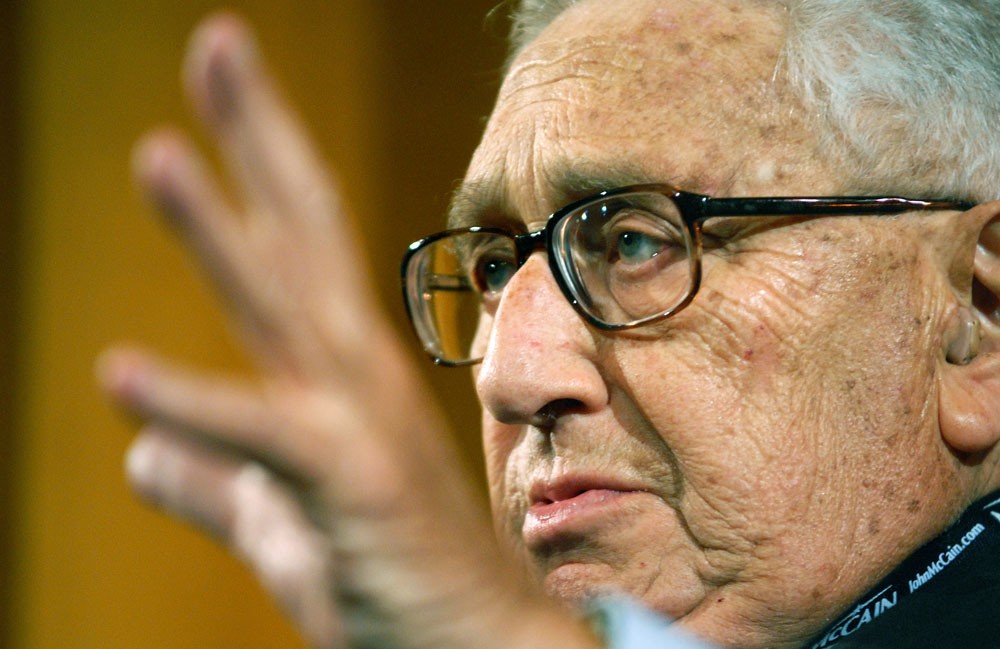Henry Kissinger spoke Thursday morning at the Humphrey Institute of Public Affairs as part of a panel discussion that kicked off the last of a four-day series on American politics and policy. Friday morningâÄôs topic, âÄúDemocracy and AmericaâÄôs Role in the World,âÄù was addressed by six foreign policy leaders. Kissinger, secretary of state for both Richard Nixon and Gerald Ford, said the U.S. government needs to know where it wants to go, but should exercise patience in democratizing. âÄúSocieties are like organisms âÄî there is a rate of change they can absorb âÄî if you go beyond that, you have to sustain the change with violence,âÄù he said. Moderator Brian Atwood , dean of the Humphrey Institute, said promoting democracy has been controversial on âÄúboth sides of the aisle,âÄù noting that half of new democracies globally since 1965 have failed, while some non-democratic countries have experienced impressive growth. Panelist Michael Gerson responded that it is essential to build institutional structures to support changes in power. He said when crisis arises, weâÄôll be asked: âÄúWhat did you do to prepare the ground for an alternative to radicalism?âÄù Kissinger said he questioned the ability of the U.S. government to âÄúcarry out democratization on a global scale,âÄù and expressed support for the efforts of the National Democratic Institute as a private organization. Kissinger said during the Nixon administration, the goal with the Soviet Union and China was not to democratize, but to normalize and bring them into the international system. Yoshi Ludwig , a second-year master of public policy student, said Kissinger showed cultural sensitivity in his analysis of China by thinking from the perspective of Chinese people, and noting that it is easier to coax China to adopt more international standards if they are included, rather than made to feel defensive. Graduate student Matt Henry said he appreciated panelist Richard HaassâÄô comment that despite AmericaâÄôs imperfections, the âÄúinstitutions that have righted wrongs in AmericaâÄù âÄî such as the press, judiciary and Congress âÄî still appeal to members of the international community. Global studies senior Katrina Kotlarik said she had been hoping for a debate about whether America should have a prominent role in democratizing countries and was disappointed that no one had expressed any doubt.











